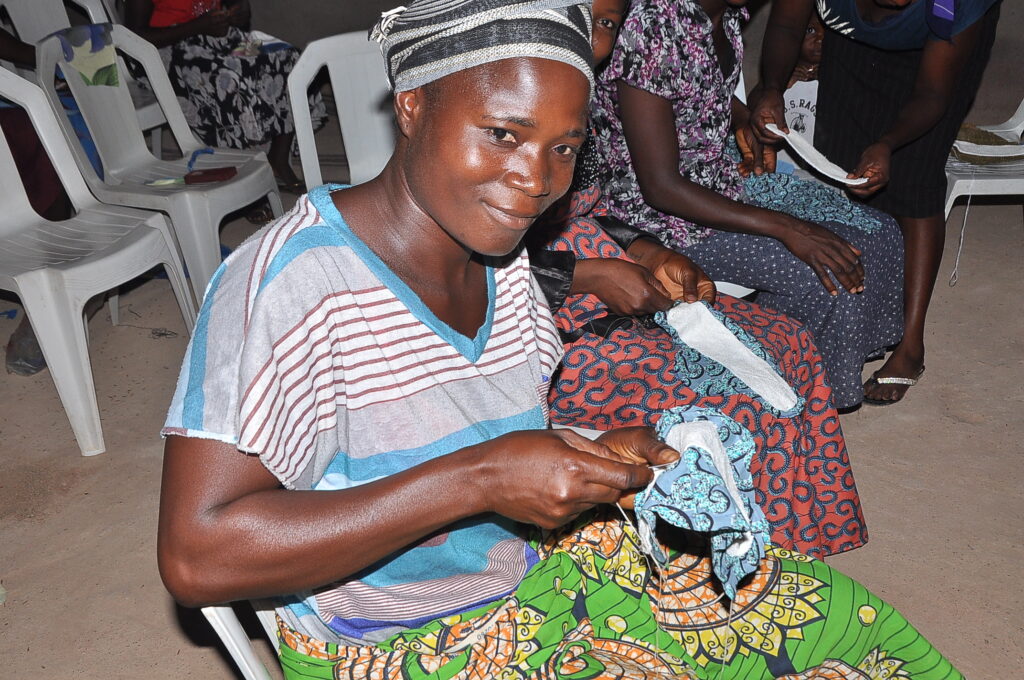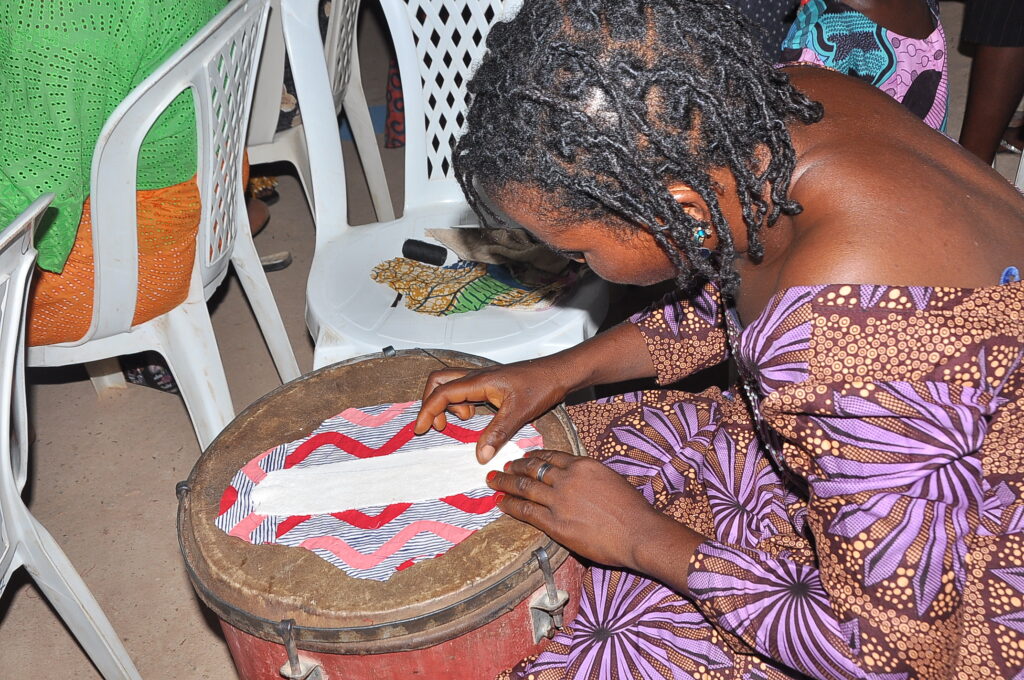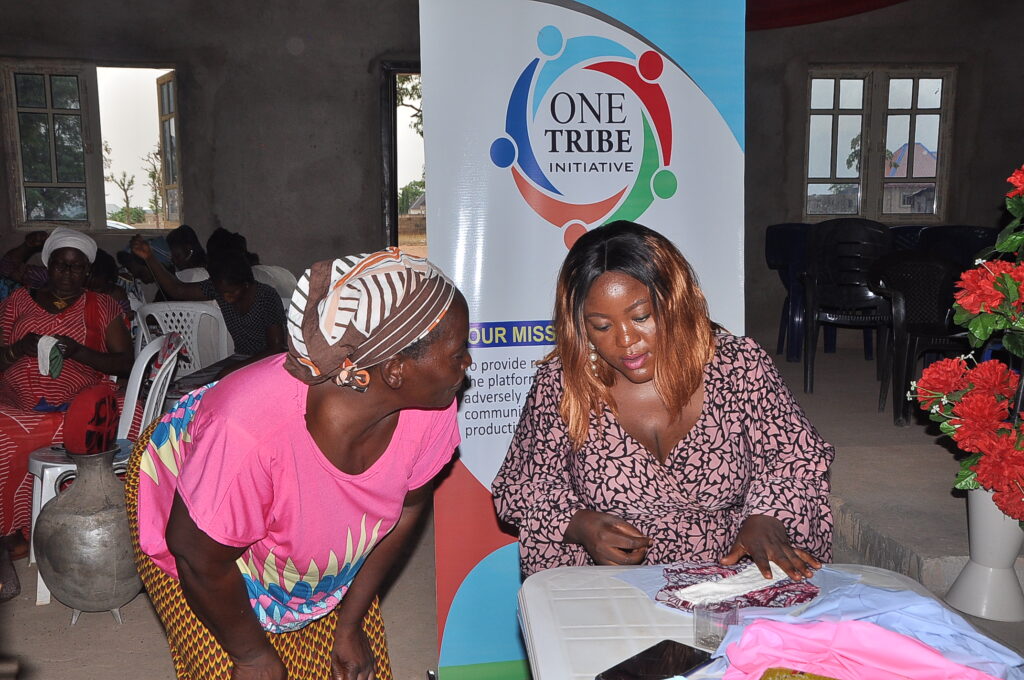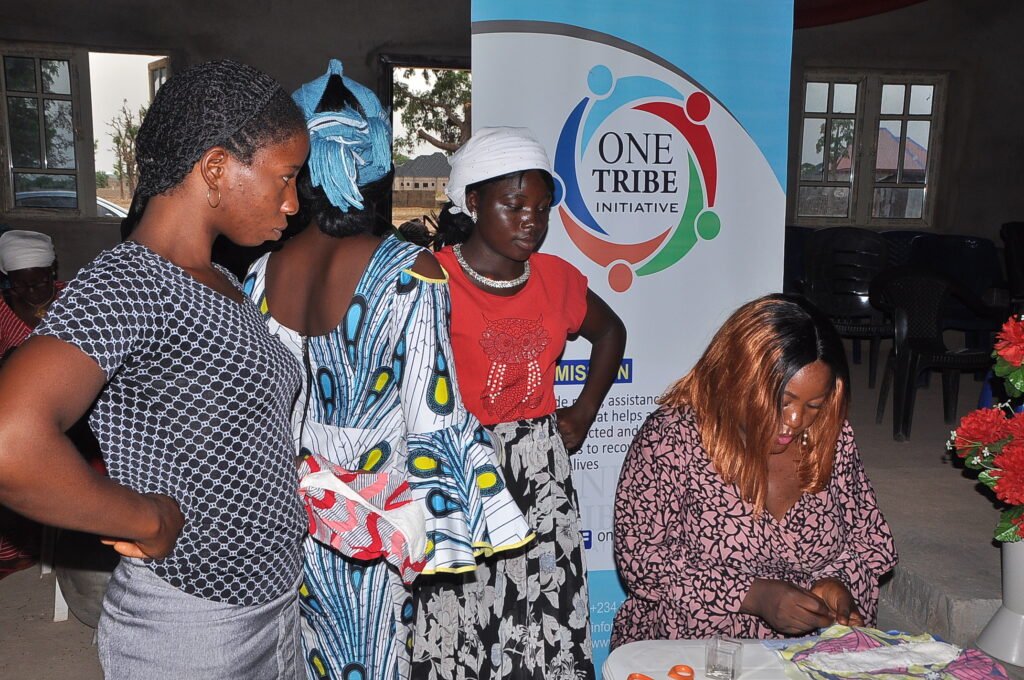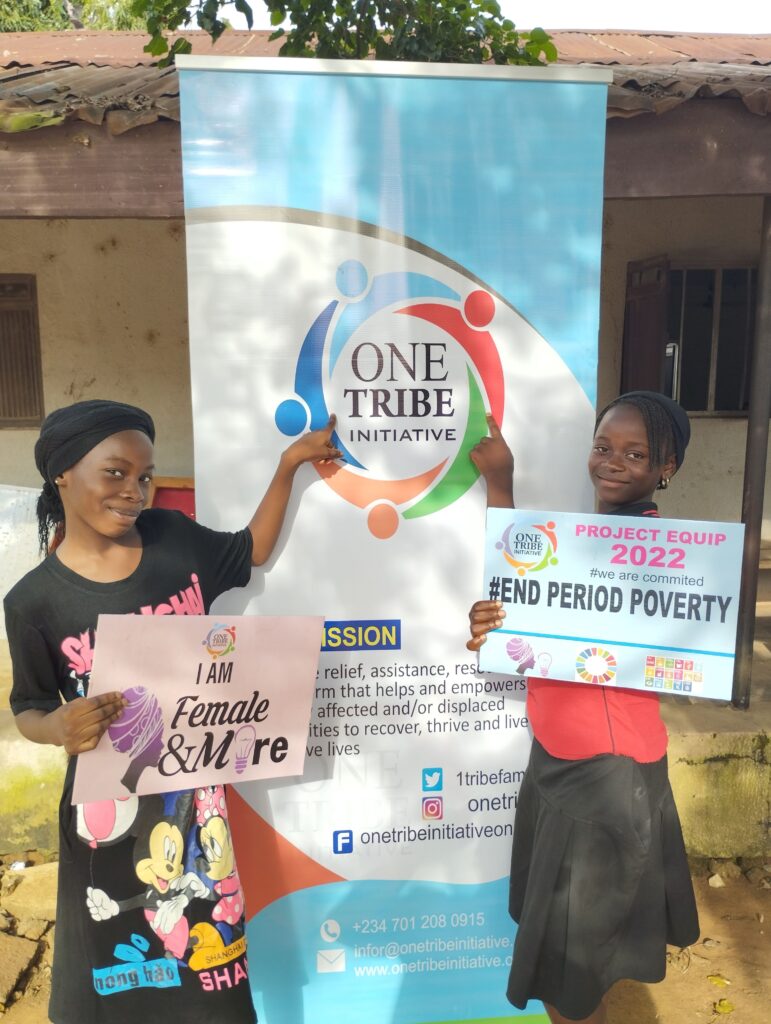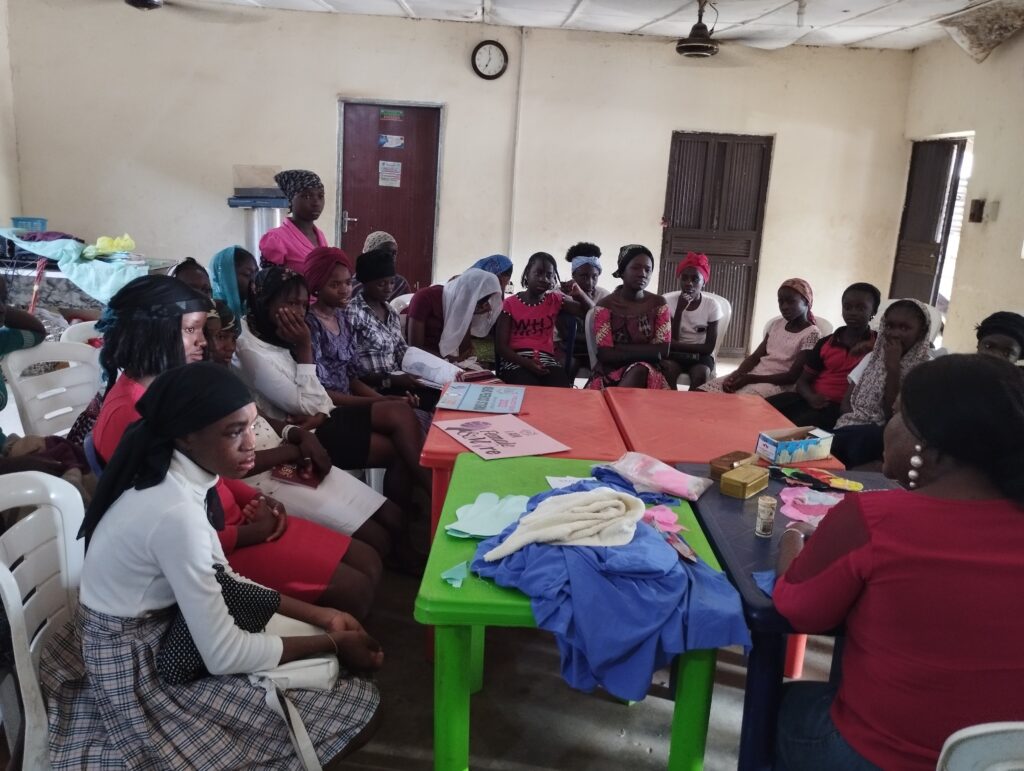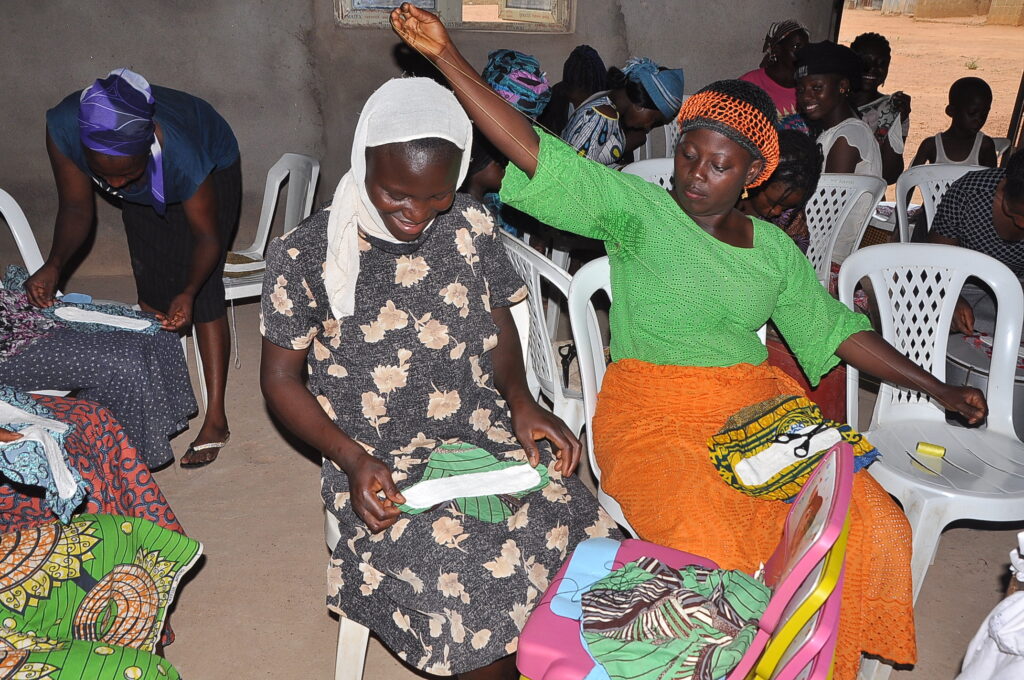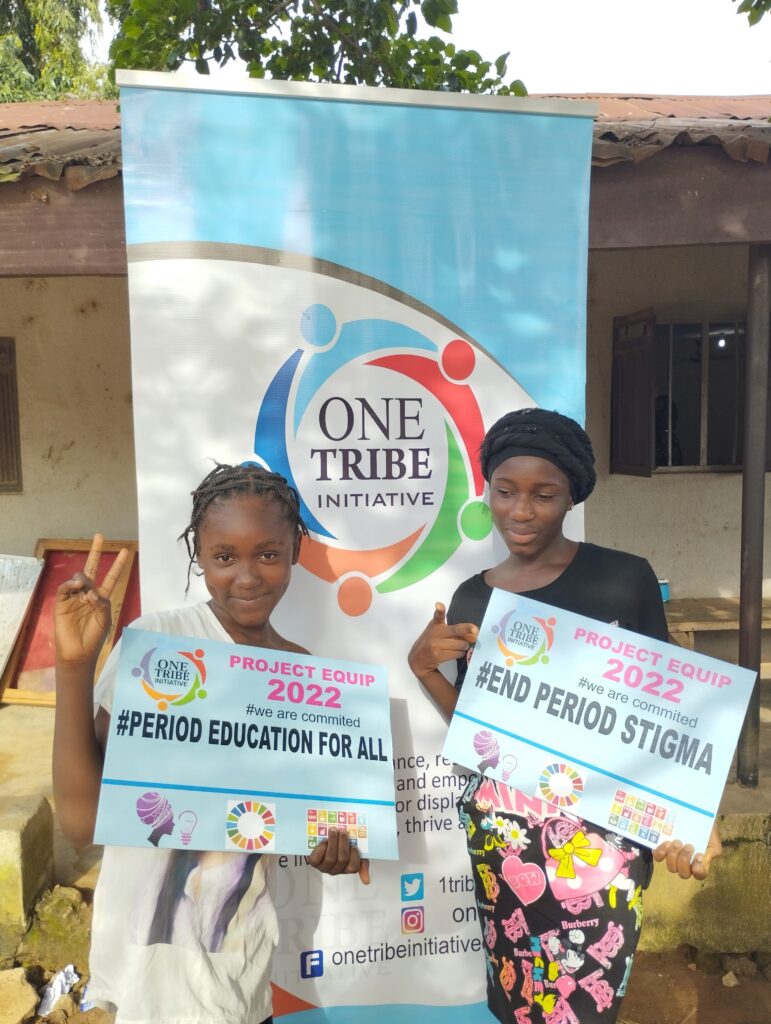Project Overview
Project EQUIP (Empowering Queens to Improve Periods) began in 2022 as a response to the high rates of period poverty in Kaduna and Plateau State, Nigeria. Period poverty refers to the lack of access to menstrual products, hygiene facilities, and education that prevent women and girls from managing their menstruation safely, hygienically, and with dignity. Period poverty can lead to negative health outcomes, social stigma, and economic disadvantages.
The aim of Project EQUIP was to empower women and girls in Kaduna and Plateau State to manage their menstruation effectively and affordably, through direct and step-down trainings that provided information, skills, and resources. The project was implemented by One Tribe Initiative.
Project Objectives
The specific objectives of Project EQUIP were:
- To raise awareness about period poverty and its impacts on women and girls in Kaduna and Plateau State.
- To provide direct training to 1000 women and girls on menstrual health and hygiene, including the use of menstrual products, hand washing, and waste management and reusable pad making.
- To conduct step-down trainings for the beneficiaries, so they can continue to educate and support women and girls in their communities.
Project Activities
To achieve the project objectives, Project EQUIP implemented the following activities:
- Baseline survey: A survey was conducted to gather information on the prevalence, causes, and consequences of period poverty in Kaduna and Plateau State. The survey reached 500 women and girls in both urban and rural areas.
- Awareness campaigns: community meetings were used to raise awareness about period poverty and its impacts. The campaign reached over 10,000 people in both states.
- Direct trainings: 500 beneficiaries were trained on menstrual health and hygiene, and they delivered trainings to women and girls in various settings, such as schools, churches, and community centers. The trainings covered topics such as menstrual cycle, hygiene, products, and disposal. In addition, the women and girls were taught how to make reusable pads from locally available materials, such as cotton fabric, towels, and flannel. This was aimed at empowering them to produce their own menstrual products and reduce their dependence on expensive or inaccessible disposable products.
- Step-down trainings: the 500 beneficiaries were trained on menstrual health and hygiene, using a train-the-trainers model. The step-down trainings focused on how to deliver effective and culturally appropriate menstrual health education and support, using available resources. So far we have more than 300 women that were trained by our beneficiaries.
